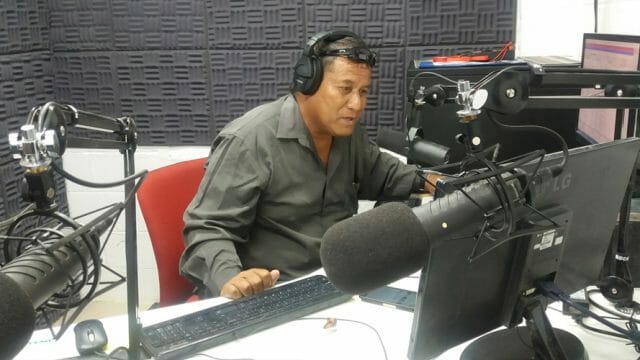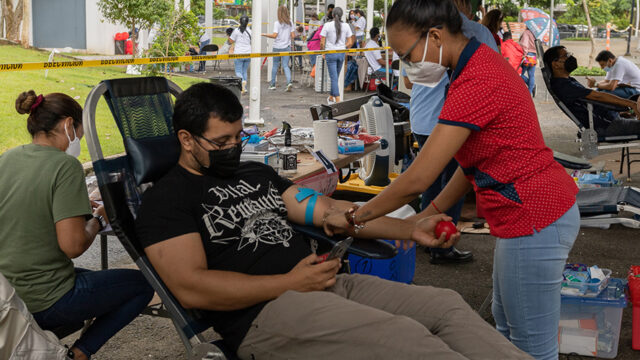Online survey delves into the mental, spiritual, and social wellbeing of members.

The COVID-19 crisis and its limitations have little impact on the mental, spiritual, and social wellbeing of the Seventh-day Adventists in Germany, according to a study by the Institute for Holistic Wellbeing and Resilience in Bremen, Germany.
In late April and early May 2020, 1,036 out of the approximately 35,000 Seventh-day Adventists in Germany took part in an online survey that represented the whole spectrum of members of the Adventist Church in Germany. Out of those who answered, 45 percent of the study participants were male and 55 percent female. The age group under 40 was 22 percent, 43 percent were between 40 and 60 years old, and 35 percent were over 60 years old. Out of those surveyed, 1.1 percent of the participants stated that they had contracted COVID-19.
All respondents stressed how unexpected the COVID-19 pandemic was for them. Nobody expected that life in the local congregations in the usual diversity would come to a complete standstill within a very short time. During the crisis, more than half of the study participants connected the pandemic to the return of Jesus and said they felt hopeful about it. Still, a quarter of respondents could not or hardly agreed to it. The hope of Jesus’ return was especially present among the elderly (more than 60 years old), but significantly less among the younger ones (less than 40 years old).
Three Experience Patterns
The study suggests that Adventists assume three patterns of emotional, spiritual, and social wellbeing, as well as digital media experiences and behaviors.
Adventist members in Experience Pattern 1 (36 percent) report a medium level of mental, spiritual, and social wellbeing. Members in Experience Pattern 2 (47 percent) describe themselves as above average in their spiritual, mental, and social wellbeing. This group benefits the most from digital media offers.
Seventeen percent of the study participants belonged to a risk group (Experience Pattern 3). They show a high level of psychological stress, low spiritual resources, and a fragile social network. That would suggest that the foundations for their experience had already been laid before the crisis. Since this group needs the love, appreciation, and stabilizing support from the local church—something they lost to the pandemic—the crisis may have hit them particularly hard.
Spiritual and Social Wellbeing
Spiritually, three-quarters of Adventists felt at ease with God during the crisis, as they give Him their challenges, worries, and fears. They said they felt God’s closeness. Half of the study participants felt spiritually alive and felt their prayers were answered. The older the study participants were, the higher their spiritual wellbeing. More than 70 percent of Adventists said they had someone with whom they could share their joys and sufferings most of the time. They stated that as far as possible, they connected with family or friends.
While 85 percent of Adventists regularly attended weekly services before the pandemic, community members said they benefited from the current digital and media offerings. According to more than 70 percent of respondents, Adventist television was an important element of support.
Satellite Transmissions Since the 1990s
The use of digital screen media had been practiced for the Adventist local communities by satellite transmissions since the mid-1990s. Annual Adventist events have been broadcast live to the congregations since the turn of the century.
Regular video conferences have also been prevalent in Adventist churches for many years now. It is something that has proven to be a resilience factor at all levels during the COVID-19 crisis. The extent to which digital media usage behavior is part of Adventist members’ life is shown by the fact that age groups and gender did not affect the frequency of digital media use.
Digital Media Is Just One More Offer
The study showed the strengthening influence of digital media activities on the mental, spiritual, and social wellbeing of Adventists during the COVID-19 crisis. The study showed that Adventist media are an additional resource that can underpin the existing mental, spiritual, and social resources of members.
The survey also revealed that Adventist members who felt the comforting and calming presence of God more intensely and more often in everyday life appear to be more “crisis-proof.”
Anyone who can access a personal social network is also more protected in the crisis. During the pandemic, digital media may provide practical resources that kept personal spiritual, spiritual, and social life alive. During the crisis, digital communication has become more closely connected to the local congregation, creating a certain form of connection to a “community-in-the-distance.”
According to the researchers who carried out the study, survey results also provide clues as to what the Seventh-day Adventist Church in Germany and its members could do in a future crisis.
“The study shows that Adventist church members have the tools to build on a good foundation to deal with crises in an agile and resilient way in the future,” they said.
The original version of this story was posted on the Seventh-day Adventist Church in Germany website.








